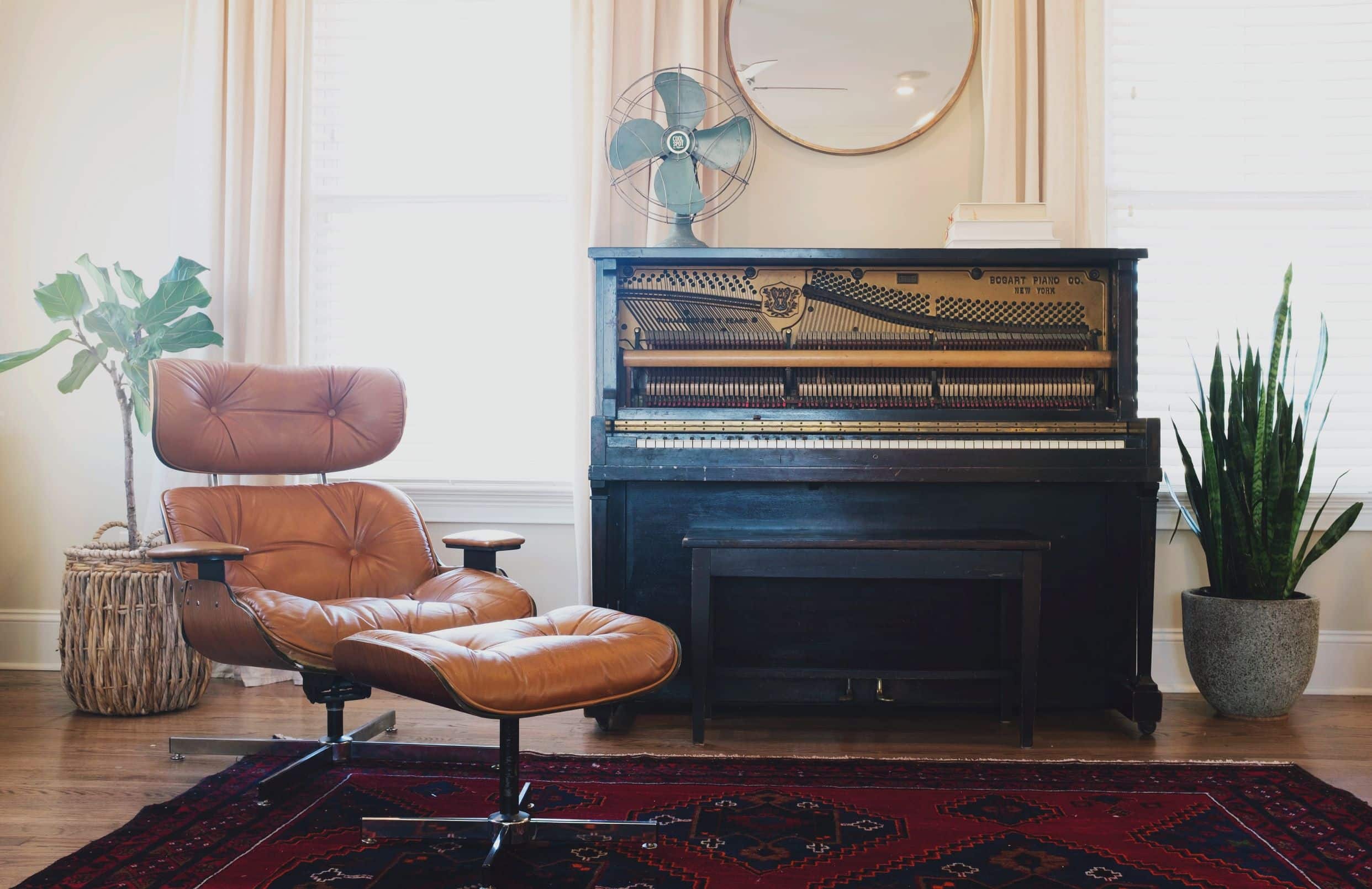So I started piano lessons about 6 weeks ago and this wasn’t the first time. The first time I got started was about a year ago. I took 3 lessons and abruptly stopped. One of the reasons I gave for giving up so soon was that I was “too busy” and too distracted with my professional life. Although there may have been some truth to the fact that I wasn’t really ready, a lot of it boiled down to me being frustrated. My piano instructor wasn’t the best fit for me. He moved too quickly for what I was comfortable with and it made me feel sort of slow and stupid. I wasn’t picking up on things quickly enough, but this wasn’t all his fault. I wasn’t taking the time I needed between sessions to practice what I was learning. I sat with him for a half an hour each week, but was then avoiding the work that needed to be done to make some improvements before the next time I met with him. Subsequently, I dreaded going back in to meet with him to “face the music”. I cancelled my 4th session and did not go back.
Being able to play the piano is something I’ve wanted to do for a good portion of my life. I knew that if I continued to put this thing off, that it would be something that I would later regret…so I decided to give it a go again. I did my research on instructors, found someone that seemed like a good fit, and communicated my need to move at a slow/comfortable pace. Although I feel more committed this time, it hasn’t been easy…and I’ve got to thinking about how learning to play the piano (although not really JUST like going to therapy) is kind of like going to therapy in a lot of ways. I’ve been on the piano bench and on the couch of a therapist’s office, so I know that although these two things are VERY different, that they’re also alike in a lot of ways. Here are just a few of the ways that learning the piano is a lot like going to therapy.
- Some progress can occur right away: As with therapy, some progress is possible right away. By the time I was done with my first piano lesson, I was able to play a really simple blues tune. I had also learned a few other skills to practice between sessions. Although I knew I still had A LOT to learn, I saw some progress really quickly and felt optimistic and hopeful about my ability to learn. It’s not uncommon in therapy for people to report feeling better (or at least more hopeful) right away, even when there is still a lot of work that needs to be done.
- It can be really discouraging – and hard: Like therapy, learning to play the piano can be hard. I run into barriers, get stuck, and have a hard time grasping some of the theory behind it all. Because it’s hard, I don’t always feel like doing it. I skip days of practice and even consider cancelling lessons when I feel like I haven’t practiced enough. Because I know that this time it will be important to push through, I show up even when I’m a little afraid I might disappoint my instructor. Similarly, it can be difficult for people to continue in therapy when some of the content brings up emotional issues that are difficult to work through.
- Most of the progress occurs in-between sessions: Just like with therapy, I spend an hour per week with my piano instructor. In the quick hour we spend together, we discuss things I’ve practiced, challenges I’m facing, and progress made. My instructor then teaches me some new skills and builds upon what I already know. Although she’s a great guide, the real work and progress takes place in the 7 days between our meetings. The hour we spend together each week would never be enough for me to get even halfway decent at playing. This means I have to spend a lot of time working on the things we cover throughout the week. Therapy is no different. If between sessions you avoid “homework”, reflecting on content from previous sessions, or practicing new ways of thinking/behaving, progress can be significantly hampered.
- It can take a while – and the rate of progress is different for each person: If I asked my piano instructor how long I needed to attend sessions until I was done, she would probably tell me that everyone is different – and that ultimately it would be up to me when I thought I was ready to be done…after all, like with Therapy, we are never really ever completely “done”. We use the things we have learned about ourselves to continue to grow, learn, and improve all throughout our lives.
- It takes a lot of practice – With piano – like with some of the new skills learned in therapy – the more you practice, the quicker you get “better”. Some of the habits we create take a while to change or undo. Consistently practicing new skills is what makes them “second nature”.
- Accountability is so important – Having to meet my instructor each week keeps me accountable and checked into my goals. It helps me stay tuned into the things I am working on and want to continue working on. In therapy, clients often share that scheduling weekly sessions helps keep them accountable as it relates to meeting their own personal goals.
- The right fit for working with you is important – As I mentioned above, I ended up quitting piano the first time partially because my instructor wasn’t the best fit for me. If you don’t find someone you click with and that understands how to work well with you, you won’t get far whether we are talking about learning a new instrument or getting somewhere in therapy.
- It’s an investment – Although learning the piano is kind of hard (and not always fun), it’s an investment of my time and money that I hope will eventually pay off and lead to a more happy and fulfilled life. Although therapy requires having to make similar temporary financial or scheduling adjustments, it’s ultimately for the purpose of investing in your life and future.
If you’re feeling “flat” or looking for a personal “tune” up, we might be the “key” to helping you work through some “major” or “minor” issues in your life…okay okay, we’re done with the piano puns…On another “note”, shoot us a text or give us a call at 727-258-5231. You can also send us a message and we’ll be back in touch soon!
Joel Schmidt, MA, LMHC
Float on Counseling, LLC is located in the Carrollwood area of Tampa on North Dale Mabry Hwy. You can Meet our Therapists or find out more about the Services we provide.

